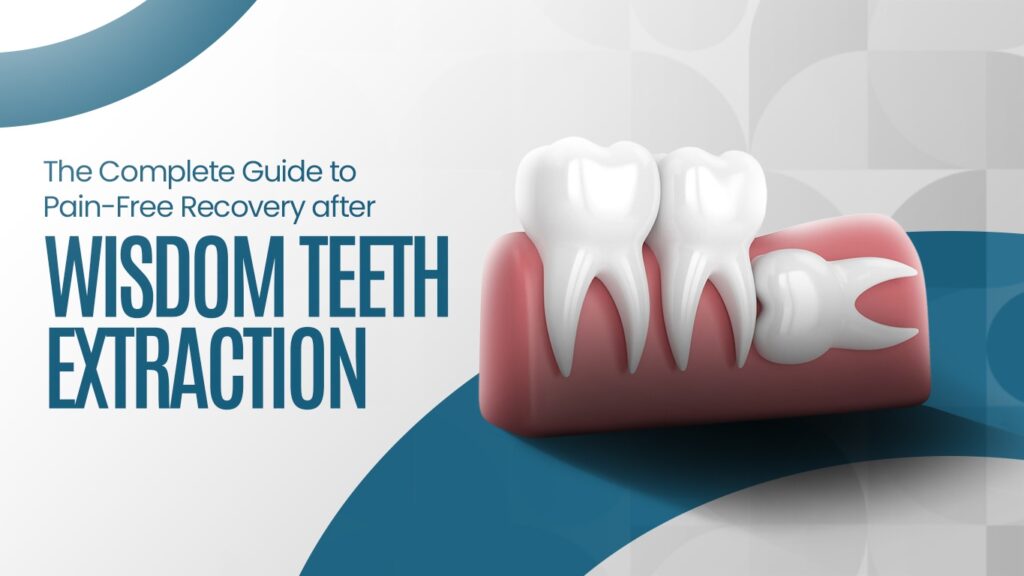Getting your wisdom teeth removed is a common dental procedure that many people face in their late teens or early 20s. While removing impacted or problematic wisdom teeth is often necessary, the recovery process can be daunting, with swelling, pain, and general discomfort. This article will provide you with a complete guide to ensuring your wisdom teeth extraction recovery is as quick and painless as possible.
Preparing for The Procedure
The first step to an easy recovery starts before you even have your wisdom teeth removed. Be sure to discuss any prescriptions or preparations with your oral surgeon ahead of time. Many dentists will prescribe a corticosteroid like dexamethasone to help reduce swelling. Antibiotics may also be prescribed to prevent infection.
Stock up on soft, nourishing foods like yogurt, applesauce, and soup, so you have food ready when you get home from surgery. Items like ice packs, ibuprofen, and saltwater rinse will be useful during recovery as well. Having comfy, loose-fitting pajamas and slippers is ideal for the first couple of days after surgery, too.
Day of Procedure
On the day of your wisdom teeth removal, be sure to wear comfortable clothes, avoid makeup, skip food and drink, and take any medications prescribed by your oral surgeon. Arranging for a friend or loved one to drive you to and from the procedure is also strongly recommended.
During the procedure, your oral surgeon will go ahead and numb the area around the teeth being extracted. You should feel minimal to no pain or discomfort during the actual extraction. Keep your head elevated and apply ice to the outside of your face once you get home. This will reduce swelling. Stick to only liquids and soft foods for the first 24 hours.
Post-Op Recovery
Recovery starts the moment your surgery is complete. Follow all post-op instructions from your surgeon carefully. They will likely include:
- Resting with your head elevated
- Applying ice packs to your face (20 mins on, 20 mins off) to reduce swelling
- Eating soft, cool foods
- Drinking lots of fluids
- Avoiding strenuous activities for 24-48 hours
- Taking prescription pain medications as needed
Expect some level of discomfort, bruising, swelling as well as stiffness in the jaw. This is normal and should subside within a week. The pain usually decreases each day. Stay on top of your medication schedule, especially in the first 48 hours. Alternate ibuprofen and acetaminophen for best pain relief.
Don’t rush back into your normal routine. Take time off work or school to rest. Avoid exercise, spitting, drinking through a straw, smoking, and other activities that involve mouth and jaw movement. Don’t resume brushing your teeth until 24 hours after surgery.
Stick to a soft food for at least four days after surgery. Slowly reintroduce normal foods around days 5-7 as you feel able. Some swelling and stiffness may persist for up to 2 weeks. Call your oral surgeon if severe pain, bleeding, or swelling occurs.
Tips for Managing Pain
Here are some additional tips for making your wisdom teeth extraction recovery as comfortable as possible:
- Apply cold compresses to reduce swelling – use for 15-20 minutes at a time
- Take medications as prescribed and on schedule
- Stay hydrated by drinking lots of warm water and electrolyte drinks
- Rinse your mouth gently using warm salt water
- Eat soft, cool, nutrient-rich foods like yogurt, smoothies, applesauce
- Rest as much as possible and avoid excessive activity
- Sleep with your head at an elevated position on 2-3 pillows to minimize swelling
- Use pillows or rolls to support your head when icing your face
- Avoid vigorous mouth rinsing, spitting, or drinking through a straw
- Ease back into normal brushing, flossing, and other oral hygiene about 3-5 days after surgery
When to Call Your Dentist
Contact your oral surgeon right away if you experience any of the following:
- Bleeding that doesn’t stop after 30 minutes of pressure
- Severe pain not relieved by medication
- Fever over 101 F
- Bad breath or foul taste in the mouth
- Swelling that gets worse after five days
- Numbness or pain that worsens over time
- Redness and warmth indicate possible infection
Calling your dentist is also advisable if your pain seems to be getting worse or if recovery is taking longer than expected. Most wisdom teeth removal recovery takes approximately 1-2 weeks. Don’t hesitate to check in with any concerns.
Conclusion
Getting your wisdom teeth out doesn’t have to be dreadful. While the first few days of recovery may be uncomfortable, there are plenty of ways to minimize pain, swelling, and other symptoms. Follow your oral surgeon’s post-op guidance closely and give your body the rest it needs. With the proper preparation and self-care, you’ll be back to normal eating, brushing, and other oral activities in no time. Focus on resting, staying hydrated, icing your face, and eating nutritious soft foods. Before you know it, your wisdom teeth recovery will be complete, and you’ll be healed and ready to get back to your regular routine.
Now that you know all there is to ensure a painless wisdom teeth recovery, be sure to visit us at Bayswater Dentist for wisdom teeth extraction.

